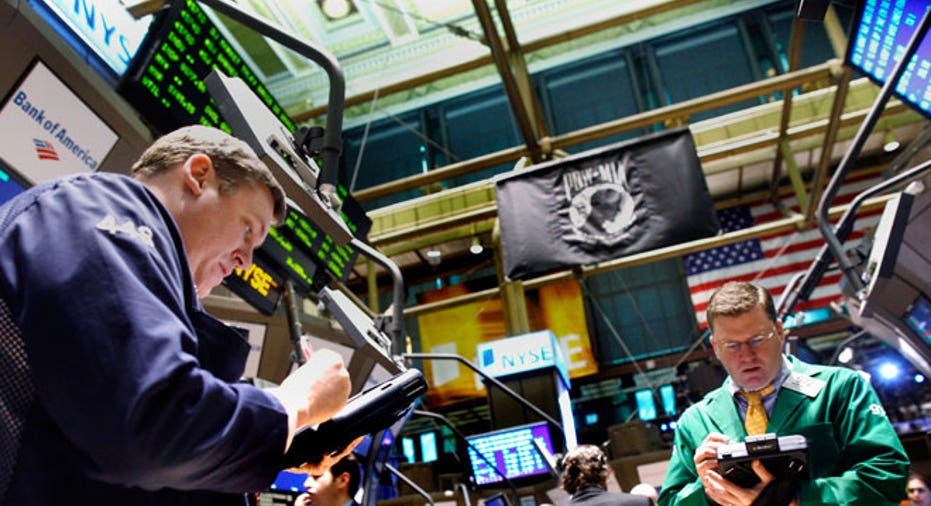Wall Street Says 'Crisis? What Crisis?'

Crisis? What crisis?
That was basically Wall Street’s attitude -- notably on stock trading desks -- toward the Congressional budget stalemate that shut down portions of the government for over two weeks and threatened an unprecedented default by the U.S. on its bills.
Traders basically ignored the doomsday predictions of the global economic wrath to be incurred by a default, believing all along an 11th hour agreement would end the impasse.
They were right.
The Senate was poised Wednesday afternoon to approve a deal that would temporarily lift the U.S. debt limit and reopen the government. The agreement was also expected to pass in the House of Representatives ahead of the Thursday deadline for when the U.S. Treasury said the government would start running short on cash.
“The markets nailed this exactly right and did exactly what they should have done,” said Lance Roberts, chief executive officer at STA Wealth Management.
Stock markets “were never fearful of a default,” added Peter Cardillo, chief market economist at Rockwell Global Capital. “(Traders) viewed it as a political charade on the part of the politicians and they believed we’d reach a deal and avoid default.”
The Dow Jones Industrial average has actually risen since Oct. 1., the first day of the partial government shutdown and the de facto kickoff to the countdown towards the Oct. 17 debt ceiling deadline. The Dow closed at 15130 on Sept. 30 and touched 15370 on Wednesday, surging more than 200 points earlier in the session on news of the Senate deal to break the budget logjam.
Dow Jones and S&P 500 Indexes Nearing Record Highs
Same goes for the S&P 500, arguably the best gauge of the health of U.S. equities. The S&P 500 closed at 1682 on Sept. 30 and hit 1720 earlier today.
Both indexes are within striking distance of record highs achieved in September even as the government shutdown and threat of default loomed.
Roberts and Cardillo both predicted the S&P 500 could reach 1800 by the end of the year now that the threat of default seems to have been lifted, at least temporarily.
Roberts said the stock runup will result from the Federal Reserve’s decision in September to continue purchasing $85 billion in bonds each month. Those purchases have created a “liquidity buildup on the sidelines,” Roberts explained, money that is now poised to flow into equity markets.
Bond markets were slightly more skittish. A number of big financial firms reportedly began unloading their holdings of short-term Treasury bills earlier this week for fear of a U.S. default. On Tuesday, Citigroup Chief Financial Officer John Gerspach said the bank no longer held any Treasurys that mature at or before Oct. 31.
But Wall Street stock traders, apparently recalling the age-old story of the boy who cried wolf, looked to the recent past for a roadmap to carry them through the current “debt crisis” created by Democrats and Republicans unable to agree on U.S. fiscal policy.
Wednesday’s deal marks at least the third time in just over two years that Congress has acted at the 11th hour to beat a deadline which, if missed, would ostensibly have held dire consequences for the U.S. economy.
Political Theatrics
In the summer of 2011, in a similar battle over raising the debt limit, Congress punted by delaying a decision for several months, much like the deal reached Wednesday. That standoff cost the U.S. its gold plated AAA credit rating.
And late last year Congress stumbled toward the January 1 fiscal cliff deadline, once again punting a decision to a later date. That impasse led to sequestration, the mandated across-the-board budget cuts that cut into federal spending beginning in March.
The political theatrics that pervaded these earlier skirmishes seem to have left many on Wall Street cynical toward the current ‘crisis.’ The exaggerated rhetoric, the fingerpointing, the accusations of bad faith from both sides have all become part of a rote formula.
“We never really saw much in the way of a sell-off -- not even 3% -- as people assumed it would eventually get resolved,” said Peter Tchir, founder of TF Market Advisors.
The performance always ends with the politicians congratulating themselves for defusing a bomb they built in the first place. That’s part of the show is scheduled for later today.



















